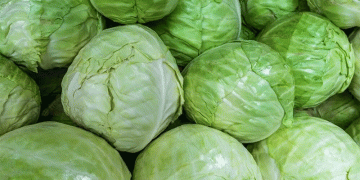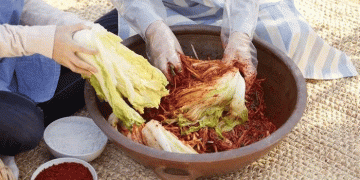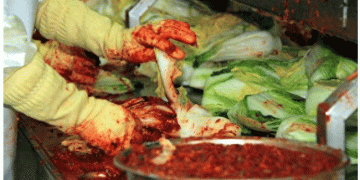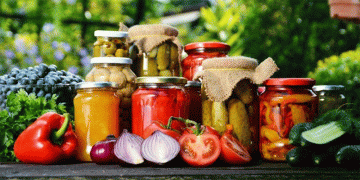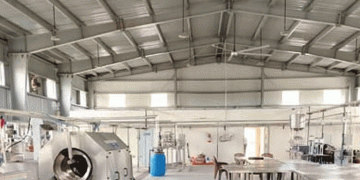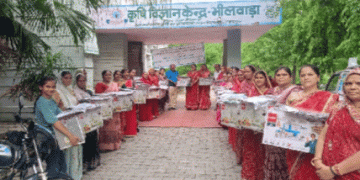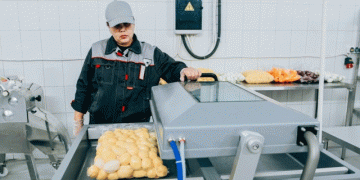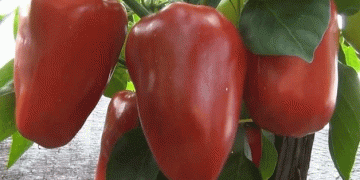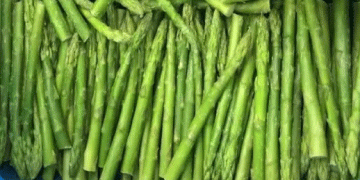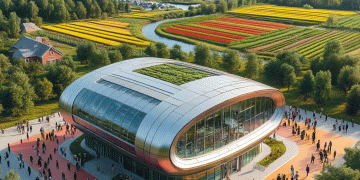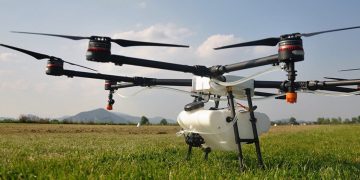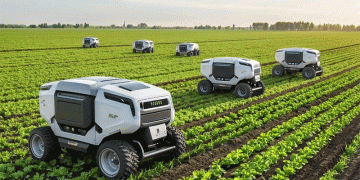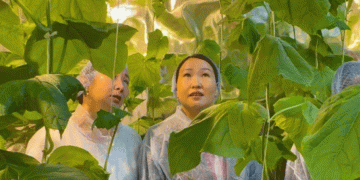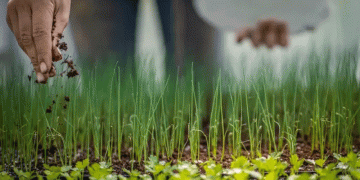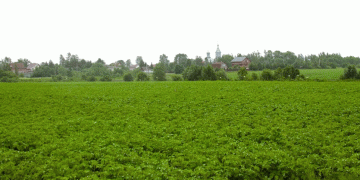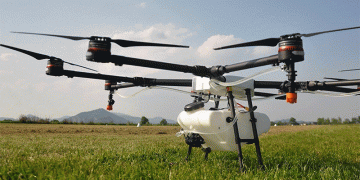Cambs Farms Growers Ltd is part of the G’s Growers Group. It is a family-owned business in East Anglia, growing salad and vegetables, with over 60 years’ experience.
Rob Parker is the leafy crops manager, and responsible for over 1,000 ha of their iceberg and little gem crop in the UK, as well as the director of G’s propagation facility. Rob is Chair of the British Leafy Salad Association (BLSA) and sits on the panel for AHDB Field Vegetables, Plant Propagators Ltd and the BLSA R&D committee.
The UK salad sector and the wider farming industry are facing many similar issues, from labour availability to sustainable growing practices. Rob discusses how he believes AHDB is currently best placed to support the industry through some complex challenges ahead.
Accessing labour
The availability of quality labour is one of the biggest challenges facing the whole sector and was accelerated by coronavirus.
At the start of this UK harvest season, we needed workforce numbers, but we critically needed a percentage of experienced ‘returnees’ – people who know how to cut and pack lettuce and could help train other workers. That was a huge challenge this year.
Labour availability and the cost of labour is only going one way. Having a joined-up approach, with AHDB facilitating and driving labour efficiencies and reducing labour inputs through SmartHort, is particularly important at the moment.
The Lean work is critical for smaller businesses who may not have thought this way in the past. We’ve had a Lean programme at G’s for a number of years, but we send our people on the AHDB programme to get them to learn the principles so they can understand and fit into our business ethos.
And while G’s can knock on the door of a robotics company and get interest in building new kit, AHDB can have that effect and drive interest for smaller growers too. They can demonstrate the size of the prize, the value of the technology and build momentum. That also benefits bigger growers and keeps us all up to speed with technological developments.
The Vegebot project by AHDB-funded PhD student Luca Scimeca developed a robotic harvesting system for iceberg lettuce. But this is actually a cross-sector project, as once you have a fundamental system (e.g. for handling delicate vegetables), it can be changed to suit the crop type. Developing that fundamental technology is really important.
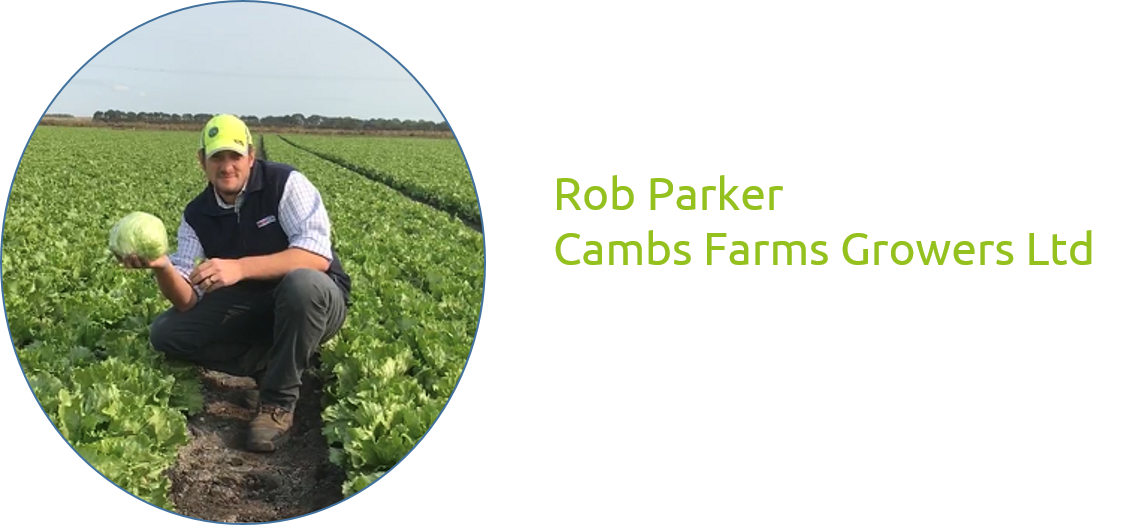
Continued loss of pesticides
The industry is losing certain pesticides that are putting some business models at risk. The EAMU programme has been very important over the last five years but will become more important going forward.
We are going to be farming using more bioprotectants and we need to learn how to use them. As an individual grower, you get bombarded with products that manufacturers claim can do different things, but where do you start?
What you need is a consolidated approach. A function that can test these products in a controlled way, to give growers some steer as to where they can then start investigating, like the AMBER project.
SCEPTREplus helps us get products approved and demonstration trials give growers good information about how to use those products in their growing systems. This kind of work is going to become a lot more complex for individual levy payers to do.
As the industry is always changing, you never know when the EAMU and SCEPTREplus work is going to come in useful. When the original SCEPTRE programme secured post-planting approval for Stomp (pendimethalin), it didn’t have massive value as we had other available herbicides, such as CIPC (chlorpropham). Now we have lost CIPC, particularly as growers on black soils in Cambridgeshire, post-planting Stomp applications are now critical to us.
Celery growers were exposed when linuron (herbicide) was lost. Hand-weeding looked like the only option, so the cost-per-stick implication was huge. Getting Emerger (aclonifen) approved through SCEPTREplus has been a fantastic benefit to the sector.
We have to keep driving the SCEPTREplus and EAMU work to keep as many actives available as possible but, at the same time, invest our money in studies that will have longer-term benefits. We have to hope these come to fruition while we still have some active ingredients left.
Responding to disease threats
Lettuce fusarium wilt is a new disease that has been hitting growers commercially already. We will never now get silver-bullet solutions, but AHDB research has shown certain products to have some impact. As an outdoor grower, it hasn’t hit us yet, but we’re looking at the trials and learning about the promising products to help us prepare in case of an outbreak. We have also adopted the hygiene recommendations at our propagation site.
Getting the measure of soil health
I personally believe that soil health, soil carbon and sustainability within our production is paramount. The industry has some very difficult decisions in the next decade so we can carry on producing what we do now.
The GREATsoils programme was a great start and I hope that will develop. As we lose pesticides, we need to be more aware of our soils. Resilient soils ultimately make a resilient plant, which means we’re less dependent on our chemistry to protect the crop against pest and disease.
There’s a lot of work at AHDB and in academia to create a blueprint for how you measure soil health. As an industry, we don’t currently have an immediate problem, so it’s difficult to justify the investment, but we need long-term thinking about where we’re heading as a farming sector. The focus on the environment in the new AHDB strategy is 100% the right direction.
And we need a more joined-up approach. It’s not just a lettuce crop, it’s a crop within a rotation. We need to look at the impact of the potato, maize, wheat, onion, sugar beet, brassicas, carrots or whatever crops and rotations growers adopt. It all has an impact. So times are changing, we can no longer be in silos. The future is a lot more integrated and cross-sector. How would we achieve that without a body like AHDB? It has the ability to bring everyone together and put proposals forward for larger projects.
Funding fundamental research
Even a company the size of G’s can’t do everything, it’s impossible. The more mechanisms you have in place to do research has got to be a good thing.
At G’s, we will take the initial findings from AHDB research but use our resources to refine it to make it work for us. We take the fundamental science and apply it. You don’t have endless funds as individual organisations. The levy we pay wouldn’t go that far in research, it’s expensive! With AHDB, there is just one request and one focused work stream. That has to be the most efficient way of getting the most data for your money.













